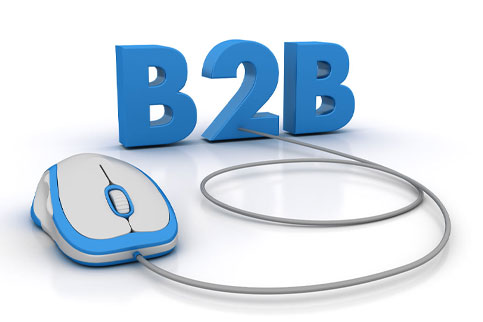The holy grail of B2B sales
If there existed a holy grail of B2B sales, it would reveal the secret of what it takes to get procurement to sign the purchase order. And the best loved theories of selling are all around why people buy. A recent Harvard Business Review article on 7 Reasons Salespeople Don’t Close the Deal by Steve Martin who teaches sales strategy at the University of Southern California Marshall School of Business breaks this mold. Featured in the August 2017 issue of HBR, the article draws on survey based research to turn the spotlight on an exciting new insight – Why people don’t buy in B2B sales conditions
Citing a new study of more than 230 buyers, the article points out that buyers rate just 12% of the salespeople as Excellent. 23% are felt to be Good, 38% are perceived as Average and a sizeable 28% are rated Poor. What is even more disquieting is that the “underperforming people lack self-awareness to know that buyers don’t value them, nor do they understand why”. Lessons of why a deal fell through or a client walked away are never learnt.
Based on interviews with buyers, here are the top 7 mistakes that many B2B salespeople make, which according to the author, results in loss of business
They fail to earn trust and respect The question to ask is: How does the Customer see the Salesperson? One more Seller/Supplier with whom they do business | Strategic partner important to their business | Trusted advisor whose counsel can be counted upon. Salespeople who are seen as trusted advisors have a huge advantage over competition. But buyers surveyed rated a mere 18% of the salespeople they met as trusted advisors
How to avoid this - Figure out where you are on the value chain with your Customers at present. Then make conscious efforts to move up and become a trusted advisor
They are poor at conversing with C level decision makers
It is conversations with C level decision makers that make or break deals. Lower rated salespeople are out of depth in understanding C level thought process and speak those levels in their language. Hardly a third of the salespeople were found to have this capability
How to avoid this – Go beyond the comfort zone of meeting only lower and mid-level people and seek out opportunities to interact with senior leadership to gain an insight into how buying decisions are made
They can’t clearly articulate their solution’s strategic value to Customer’s business Buyers within Customer companies look for reasons and arguments in favour of a specific purchase that they can provide to their senior management. Strategic value of a buying decision usually includes things like higher revenues, lower costs, competitive advantage secured and lowered risk through standardizing operations. The survey cited in the article discovered that only 54% of salespeople could clearly explain how their solution brought value to the buyer’s business
How to avoid this – Listen to the buyer’s concerns carefully and carry out in-depth research into how your product or solution solves problems and opens up opportunities for your Customer
They are seen as self-centered Asked why they were reluctant to meet salespeople, the article says, buyers that were surveyed gave the following reasons:
- “Salespeople serve only their own agenda” – 44%
- “All salespeople care about is making their sale” – 25%
- “Uncomfortable to say ‘No’ to them” – 23%
- “Salespeople not the type we associate with” - 8%
Clearly there seems to be a perception issue that needs fixing
Clearly there seems to be a perception issue that needs fixing
How to avoid this – Instead of solely focusing on revenue, help buyers accomplish their goals
How to avoid this – Instead of solely focusing on revenue, help buyers accomplish their goals Says the author: “Study participants were presented with different closing techniques to understand how they would respond. Overall, hard close techniques such as ‘This is the last time we’ll be able to extend this offer and we need an answer now’ were rated least effective”. Buyers might equate this with a ‘take-it-or-leave-it’ mindset in the seller and refuse the offer outright. On the other hand, soft close techniques offering fresh benefits for additional investments were rated most effective
How to avoid this – Adopt soft close approaches that empower buyers and give them a feeling of ownership of the buying decision
They don’t assuage buying risk concerns that typical B2B buyers perceive B2B buyers are typically answerable to multiple stakeholders within their organisations, which makes them fixated on buying risk. This explains the iterative requests for proposals, intricate evaluation spreadsheets and elaborate proof of concept requirements for every single product feature. After all this, the deal often does not go through as the salesperson hasn’t alleviated the perceived buying risk in the decision maker’s mind.
How to avoid this – Understand the risk concerns and internal dynamics unique to your B2B Customer and take pains to assuage specific buying risk anxieties your Customer may be experiencing. Also, as the author points out: “Tolerance for risk fluctuates by function and by industry. Not surprisingly, IT and accounting have less risk tolerance than marketing; dynamic, creative fields such as fashion and media have more risk tolerance than government or health care”
They fail to establish personal connect with the buyer
Personal chemistry counts for a lot in sales activity. Reasons for poor chemistry, listed in the article include:
- The salesperson was too pushy.
- There was a difference in communication styles.
- The salesperson’s personality was much different from mine.
- The salesperson was too eager to befriend me.
- There was a difference in age
Mercuri Insights
B2B is H2H. Businesses buy and sell through humans. The same markers for credibility in inter-personal relationships such as appreciation for empathy, aversion to intrusion and fear of risk.. apply in the B2B space as well. Being good at listening to what is and is not being said, asking instead of telling, are some examples of learnable skills that drive success in selling.. H2H and B2B.















